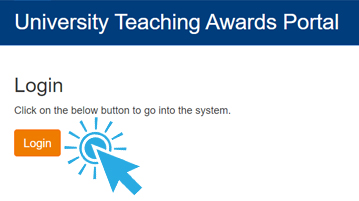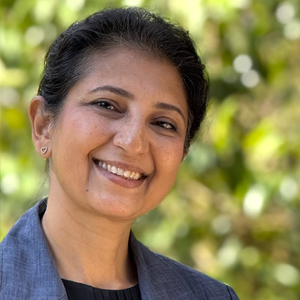Application Process
Timeline & Selection Process
Timeline
| 18 July 2025 (Fri) (UTAP open for submissions) | FTECs will be able to set their Application Submission Period in the University Teaching Awards Portal (UTAP) to allow eligible candidates to submit their application and documentation to their respective FTECs. |
| 23 October 2025 (Thu) 23:59hrs (Deadline for FTEC Submission to UTEC) | FTECs will submit selected applicants’ submissions to UTEC c/o CTLT via UTAP. |
| November – December 2025 | Evaluation of applicants’ submissions by UTEC Interview of OEA applicants by UTEC |
| December 2025 – January 2026 | UTEC deliberates and finalises reports for Office of the Deputy President (Academic Affairs) and Provost |
| February 2026 | Approval of OEA & ATEA/ITEA recommendations by Office of the Deputy President (Academic Affairs) and Provost Approval of OEA recommendations by the President |
| May-Aug 2026 (tentative) | University Awards 2026 |
| May-Sep 2026 (tentative) | Annual Teaching Excellence Award (ATEA/ITEA) Ceremony and Outstanding Educator Award (OEA) Public Lectures 2026 |
Selection Committee
The committees involved in the selection of the Outstanding Educator Award (OEA) and Annual Teaching Excellence Award (ATEA) are:
Faculty of Arts and Social Sciences
NUS Business School
School of Computing
College of Design and Engineering
Faculty of Law
Lee Kuan Yew School of Public Policy
Yong Siew Toh Conservatory of Music
Residential Colleges
| Yong Loo Lin School of Medicine
Faculty of Dentistry
Saw Swee Hock School of Public Health
Duke-NUS
Faculty of Science
NUS College
NUS Graduate School
Centre for English Language Communication
Institute of Systems Science
|
- A/P Soo Yuen Jien, School of Computing, Dept of Computer Science
- Prof Wong Lim Soon, School of Computing, Dept of Computer Science
- A/P Chris McMorran, Faculty of Arts & Social Sciences, Dept of Japanese Studies
- A/P Zhang Yang, Faculty of Arts & Social Sciences, Dept of Economics
- A/P Lee Kooi Cheng, Centre for English Language Communication
- A/P Intekhab Islam, Faculty of Dentistry
- A/P Lynette Tan Yuen Ling, Residential College 4
- Prof Vincent Tan Yan Fu, [Primary] Faculty of Science, Dept of Mathematic; [Secondary] College of Design & Engineering, Dept of Electrical & Computer Engineering
- A/P Idris Lim Li Hong, Dean’s Office, College of Design & Engineering
- A/P Lam Siew Hong, Faculty of Science, Dept of Biological Sciences
- Dr Zhou Ziqian, Centre for English Language Communication
- A/P Peace Wong Yuh Ju, Faculty of Arts & Social Sciences, Dept of Social Work
- A/P Nga Min En, Yong Loo Lin School of Medicine
- A/P Lo Mun Hou, NUS College
- A/P Aaron Tan Tuck Choy, School of Computing, Dept of Computer Science
University Teaching Awards Portal (UTAP)

University Teaching Awards Portal (UTAP)
To access UTAP, you must use a device that is enrolled in Workspace ONE. If you have not yet enrolled your devices in Workspace ONE, please refer to Workspace ONE for step-by-step guides to enrol your devices or look for NUS IT Care (itcare@nus.edu.sg) to assist.
UTAP Support
Please contact nusit-utap@groups.nus.edu.sg.
Frequently Asked Questions
Types of Awards
The purpose for the ADEA was to encourage the adoption of technology and to recognize colleagues’ achievements in the effective use of technology in teaching that positively contributes to students’ learning. Following the COVID pandemic, there has been a positive shift in mind-sets towards the use of digital technology and therefore there is no longer a need for a separate digital award. The thoughtful integration of appropriate digital technology in teaching will be included within the ATEA (Annual Teaching Excellence Award) that recognizes NUS colleagues, whether as individuals or teams, for teaching achievements that have positively contributed to students’ learning and a broader culture that values teaching.
Eligibility
The applicant should be a full-time NUS faculty member or an NUS employee with significant teaching role and impact. FTECs (Faculty Teaching Evaluation Committee) should exercise discretion on the eligibility of all applicants.
No. Applications may be submitted for only one university-level teaching award per year.
Yes. Applications may be submitted for only one university-level teaching award per year, but it is possible for an individual nominee to be a member of a Team application as long as that individual is not the Team leader.
Yes, all Honour Roll awardees (including existing awardees) will be able to apply for ATEA awards under the Team sub-category as a member but not as a leader.
No. All applicants (OEA and ATEA), whether they are asked to apply by FTEC or decide to apply themselves, need to be nominated by an FTEC (Faculty Teaching Evaluation Committee). Only FTEC can submit nominations to UTEC.
Team members should include NUS staff and students only. In a situation where the student has graduated, the Team leader and members should discuss and decide if it is appropriate to recognize the student’s contributions and include him/her as a team member in the application.
All applicants who have received the ATEA award (including past ADEA, if applicable) three times, will be awarded the Honour Roll. This applies to individuals in the case of Individual awards and to the team leader in the case of Team awards.
In the past, the ATEA was recognized based on the academic year under review, e.g. AY 2018/2019. Changes to the ATEA were introduced in Aug 2020 and it will no longer be limited to work done in the past AY. This is to foster development of teaching over time. Moving forward, the ATEA will now be recognized based on the Year of Award, similar to the OEA.
Please see illustration in the table below:
| Year of Submission (YoS) | ATEA | Honour Roll | OEA |
| Aug 2019 | AY 2018/2019 (based on Year under review) | 2020 (based on year after receiving the 3rd ATEA) | 2020 (based on Year of Award) |
| Aug 2020 (Addition of ADEA and Team award; ATEA will no longer be based on work done in past AY) | 2021 (based on Year of Award) | (2022-2026) (based on 5-year sit out period) | 2021 (no change) |
| Aug 2021 | 2022 | (2023-2027) | 2022 |
Quota
Faculty award quotas are a faculty matter and to be decided locally.
No, but the Team leader and members will need to discuss and decide on what is an appropriate size for their own team in order to collaborate and work together effectively.
Entitlement
The award money will be credited into each team member’s account based on the distribution agreed by the team.
Yes, they will share the award money as well as being recognized at the university-wide Teaching Awards Ceremony.
Submission
Applicants are encouraged to integrate evidence in their impact narratives as part of the Teaching Statement. The evidence should be analysed and interpreted in relation to the claims about impact of teaching in the narrative.Raw data that are left unexplained are less helpful and should not be included.
Rather than attach all the student feedback and peer review reports, it is important for the applicant to make use of the information in the student feedback and peer reviews as a potential source of evidence to demonstrate impact on students’ learning in the teaching statement. The University Teaching Awards Portal (UTAP) will be able to provide the applicant’s completed peer reviews (for the past 3 academic years and current year, if any). From mid Jul 2023, UTAP can allow applicants to access their student feedback reports (past 3 academic years) via login to BLUE system, to download and upload relevant student feedback to support the teaching statement.
The awards (OEA and ATEA) are no longer limited to work done in the past 3 years (OEA) or 1 year (ATEA) and this is to foster development of teaching over time. The criteria will help to guide applicants to prepare and write their Teaching Statement. While an applicant can submit a Teaching Statement based on work done for one semester, it may be challenging for the person to provide a reflective and narrative that demonstrates compelling evidence of impact.
All applications must be made using the University Teaching Awards Portal (UTAP). Applicants will be able to use the UTAP from 17 Jul 2024 onwards to submit their applications after their FTECs have configured the Applicant Submission period in UTAP.
ATEA applicants must use the rich text editor box provided in the University Teaching Awards Portal (UTAP) to provide their Teaching Statement, including tables, charts, images, citations, references, etc. The rich text editor box will provide a word count limit of 1,500 words (maximum word limit for Teaching Statements for ATEA applications). Text included in the tables, charts, etc. will add to the word count. The copy and paste function for images should be used to include real images such as photo images, etc.
Only past nominees for the University level teaching awards within the last 3 years will be required to highlight the differences (about 150 words) between their current year’s teaching statement and past teaching statement(s) that were submitted in the last 3 years. This is to encourage applicants to continually improve to advance their teaching and foster development over time.
Applicants are encouraged to adopt the guidelines as it would help the FTECs and UTEC in their evaluations but they are free to provide their own format.
Yes. The first Applicant Submission deadline is the internal faculty due date. This deadline is determined by the faculty (or school) internally and will vary from faculty to faculty. Applicants need to submit their applications by the internal deadline to their faculty teaching evaluation committee (FTEC).
After this, the FTEC will decide which of the applicants to nominate and then send through those nominations to CDTL by the UTEC deadline of 21 October 2024.
FTEC Matters
Yes. The FTEC will rank their nominees before submission to UTEC. This serves two key evaluative purposes for UTEC: (a) an indication of the level of recognition of nominees as perceived by FTEC; and (b) the need for FTEC evaluative judgments of potential nominees in view of the absence of quota.
FTECs should prepare and submit a citation (1,000 words) for each OEA nomination to make a case for the applicant’s impact with reference to the award criteria.
This requirement will be optional for ATEA nominations but FTECs are strongly encouraged to prepare and submit a citation (about 300 words) for each ATEA nomination to make a case for the applicant’s/ team’s significance and impact with reference to the award criteria. The citation should comment on information not available in the teaching statement.





































































